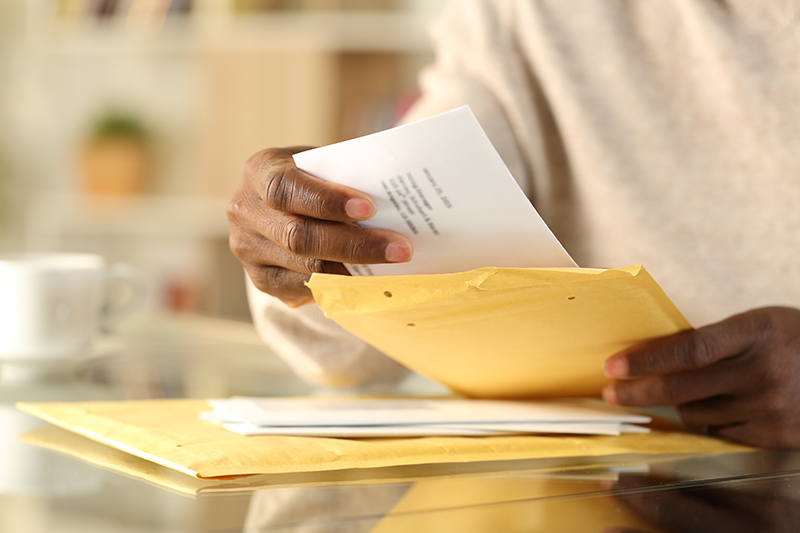I got an IRS CP14 Notice, but I already paid the IRS.
November 01, 2022 by Steve Banner, EA, MBA
Just when you thought your IRS troubles were behind you, look what happened. Another letter from the IRS landed in your mailbox.
As you were opening the envelope, you were probably thinking it contained a formal receipt to acknowledge your payment. And there might have even been a nice note in there to thank you for paying so promptly and helping the IRS deal with the mountain of paperwork that it faces every year. But all of those pleasant thoughts went right out the window when you realized it was another demand for payment for the same amount you thought you had already paid. What’s going on here?
Well, the first thing is, don’t worry. Now, I know nobody likes to find an official-looking letter with an IRS logo on the front in their mailbox, so me saying “don’t worry” is like telling someone not to think about elephants. As soon as you tell someone not to think of elephants, they immediately start seeing tusks and trunks in their imagination. But in all seriousness, it’s very likely the letter was sent by mistake – so let me explain how that might have happened.
In any given year, the IRS handles more than 150 million tax returns – some of which are filed electronically, and some by paper. But when it finds an error or discrepancy on a tax return, the IRS sends a letter to the primary taxpayer on the return as it did with you. If you disagreed with the contents of the IRS letter, you may have responded by mail rather than waiting on hold on the phone. Or if you agreed with the original letter, you may have paid the balance due by mailing a check or money order. My point here is that the IRS has a mountain of paperwork to deal with every year, and thus delays are inevitable. However, the whole situation has been made much worse by the COVID pandemic and, as recently as June of 2022, more than 21 million tax returns were still waiting to be processed. And of course, some of those 21 million returns would cause letters to be sent to taxpayers, which would in turn generate more letters to be added to the enormous backlog of unopened mail at the IRS.
So, what I’m saying is that your payment has very likely been received already by the IRS, regardless of whether you paid electronically or by mail. But due to the huge backlog of work caused by the effects of the pandemic, your payment may not have been fully processed. And because the IRS computer system does not yet show that your payment has been received, a CP14 letter is automatically generated and sent.
None of this means that you can ignore the letter. You should keep it in a safe place in case you need to contact the IRS further about this matter. But in the meantime, here are the actions you should take:
- Check your bank statement to see if your check or electronic payment has been debited from your account.
- You may choose to create an online account at the IRS so you can see when your payment is credited.
Another reason you may have received the CP14 letter is due to the IRS’ processing of payments from spouses on married filing jointly returns. Although the payments were received, they were not correctly credited to the married filing jointly account. In cases such as this, our recommendation is that you:
- Create an online IRS account for both partners so that you can see when your payments are credited.
Lastly, you may have received the CP14 letter because you made a mistake and did not pay the full amount owed on your original letter. In this case, we recommend that you carefully check the amount shown on the letter and pay it by the due date – and better still, pay it electronically so you don’t risk your check getting stuck in the mountain of mail.
Another action you might choose to take is to talk things over with an experienced tax professional who will review your case at no cost and with no obligation. TaxAudit’s team of tax attorneys, CPAs and Enrolled Agents helps thousands of taxpayers every year resolve their tax debt issues. They can help you too, so you can stop worrying and go back to thinking about elephants!





